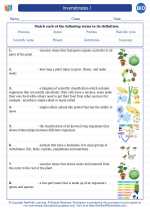Medical Sciences
Introduction to Medical Sciences
Medical sciences encompass a broad range of disciplines that focus on understanding the human body, diseases, treatments, and overall healthcare. It includes fields such as anatomy, physiology, pharmacology, pathology, microbiology, and many others.
Key Concepts in Medical Sciences
- Anatomy: The study of the structure and organization of the human body.
- Physiology: The study of how the body functions and the mechanisms of various bodily processes.
- Pathology: The study of disease processes, their causes, and effects on the body.
- Microbiology: The study of microorganisms and their effects on human health, including the study of bacteria, viruses, and fungi.
- Pharmacology: The study of drugs and their effects on the body, including their uses in treating diseases.
- Genetics: The study of genes, heredity, and genetic variation, and their relationship to health and disease.
Study Guide for Medical Sciences
Studying medical sciences requires a solid understanding of various concepts and principles. Here's a study guide to help you excel in this field:
1. Understand the Human Body
Gain a thorough understanding of human anatomy and physiology, including the structure and function of organs, tissues, and organ systems.
2. Learn about Diseases and Pathology
Study different diseases, their causes, symptoms, and effects on the body. Understand the principles of pathology and how diseases manifest at the cellular and molecular levels.
3. Explore Microbiology and Infectious Diseases
Learn about various microorganisms, including bacteria, viruses, and parasites, and how they cause infectious diseases. Understand the principles of immunology and host-pathogen interactions.
4. Study Pharmacology and Drug Actions
Gain knowledge of different classes of drugs, their mechanisms of action, and their uses in treating various diseases. Understand the principles of pharmacokinetics and pharmacodynamics.
5. Investigate Genetics and Molecular Biology
Explore the principles of genetics, including inheritance patterns, genetic disorders, and the role of genetics in personalized medicine. Learn about molecular techniques used in genetic research.
6. Stay Updated with Advancements in Medical Sciences
Keep abreast of the latest developments, research findings, and technological advancements in the field of medical sciences through scientific journals, conferences, and reputable online sources.
.◂Biology Worksheets and Study Guides High School. Invertebrates
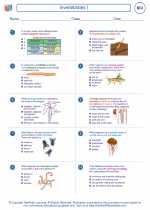
 Worksheet/Answer key
Worksheet/Answer key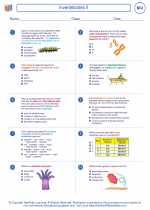
 Worksheet/Answer key
Worksheet/Answer key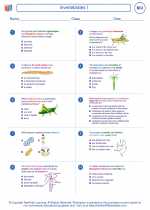
 Worksheet/Answer key
Worksheet/Answer key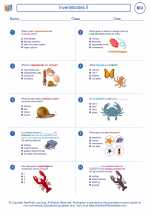
 Worksheet/Answer key
Worksheet/Answer key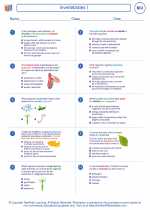
 Worksheet/Answer key
Worksheet/Answer key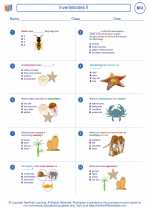
 Vocabulary/Answer key
Vocabulary/Answer key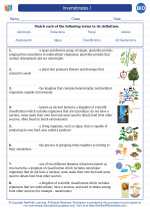
 Vocabulary/Answer key
Vocabulary/Answer key
 Vocabulary/Answer key
Vocabulary/Answer key